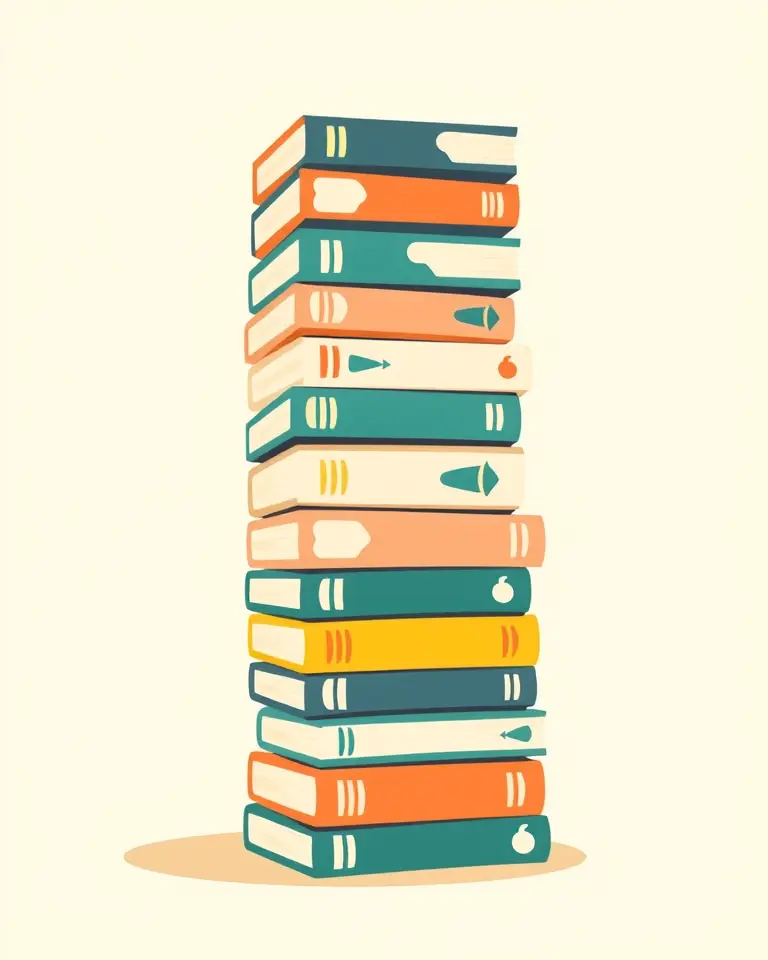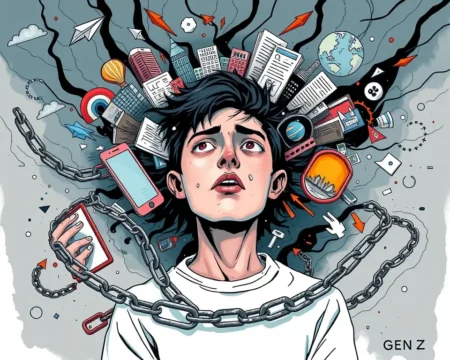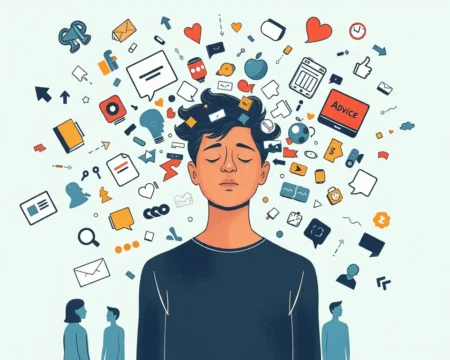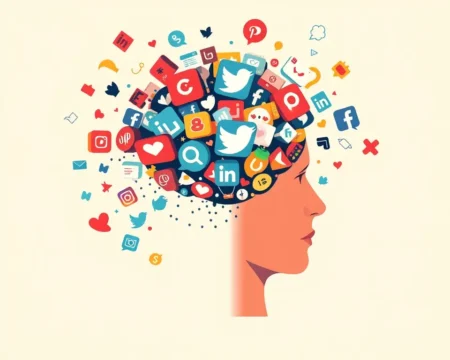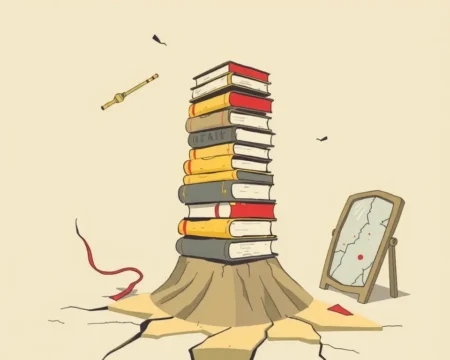The self-help industry is a booming business, with thousands of books promising to unlock your potential, mend your relationships, and guide you to a happier life. But do these books actually deliver on their ambitious claims? While some critics dismiss self-help as a source of false hope or oversimplified advice, others argue that these books can be powerful tools for personal growth when approached with the right mindset. This article delves into the debate, exploring whether self-help books offer real remedies or merely a delusion, while highlighting ten titles that have the potential to genuinely help you change your life.
The Great Self-Help Debate: Do They Actually Work?
The effectiveness of self-help books is a hotly debated topic. On one side, you have proponents who believe these books can offer accessible guidance, acting as a catalyst for positive change for those who may not have the resources or inclination to seek therapy. Research has even shown that some self-help books can be as effective as private therapy for certain conditions, such as mild depression, when the reader is motivated and follows the instructions closely.
However, there is substantial criticism. One common argument is that self-help books often provide “one-size-fits-all” advice, failing to recognize the uniqueness of each individual’s circumstances, needs, and diagnoses. This can lead to generic or overly simplistic information that doesn’t resonate with the reader or address the complexities of their particular situation. Critics also point out that many self-help books are written by individuals without formal qualifications or expertise in psychology or mental health, raising questions about the reliability of their guidance. Some books even make exaggerated claims that can lead to unrealistic expectations. If readers fail to experience the promised transformations, they might feel a sense of failure or inadequacy. Furthermore, some argue that self-help books can promote a “false hope syndrome” and encourage avoidance rather than confronting real issues.
Ultimately, the efficacy of a self-help book often hinges on the reader’s interpretation and engagement. Reading alone is not enough; action and implementation of the learned principles are essential for any lasting positive change. Those who actively engage with the content, apply its lessons to their own lives, and remain critical are more likely to benefit.
10 Self-Help Books That Offer Real Potential
Despite the debate, numerous self-help books have demonstrably impacted individuals worldwide. These books, often grounded in research or practical experience, provide readers with actionable steps and valuable insights for personal growth. Here are ten titles that stand out:
1. Atomic Habits by James Clear
Atomic Habits is a practical guide to building good habits and breaking bad ones. Clear emphasizes that significant change doesn’t come from massive overhauls, but from the compounding effect of small, incremental improvements, or “atomic habits”. His approach is based on four key principles: make it obvious, make it attractive, make it easy, and make it satisfying. This book has resonated with many due to its evidence-based advice, and it is considered one of the best self-help books for creating real changes in behavior.
2. The 7 Habits of Highly Effective People by Stephen Covey
A timeless classic, The 7 Habits of Highly Effective People provides a principle-centered approach to personal and interpersonal effectiveness. Covey’s framework focuses on seven habits that emphasize character ethics, moving from dependence to independence and ultimately to interdependence. The book is lauded for its depth and wisdom, offering a clear roadmap for personal and professional success.
3. How to Win Friends & Influence People by Dale Carnegie
Published in 1936, How to Win Friends & Influence People remains a staple in the self-help genre. Carnegie’s work is a practical guide to improving social interactions and building relationships. The book offers principles on making people like you, winning people to your way of thinking, and being a leader, which can lead to real improvements in communication and interpersonal skills.
4. Mindset: The New Psychology of Success by Carol S. Dweck
In Mindset, Carol Dweck explores the power of our beliefs about our abilities. She introduces the concepts of a “fixed mindset” and a “growth mindset,” demonstrating that believing our talents and abilities can be developed through dedication and hard work leads to greater achievements and resilience. This book has profound implications for personal and professional development, encouraging individuals to embrace challenges and learn from setbacks.
5. The Power of Now by Eckhart Tolle
Tolle’s The Power of Now guides readers toward a state of presence through the practice of mindfulness. The book argues that focusing on the present moment and letting go of the ego can lead to spiritual awakening and a more fulfilling life. It has become a foundational text for those seeking inner peace and a deeper understanding of their consciousness.
6. Self-Compassion: The Proven Power of Being Kind to Yourself by Kristin Neff
Kristin Neff’s book, Self-Compassion, argues that self-kindness, rather than self-esteem, is the key to emotional well-being. Neff offers practical exercises and insights for cultivating self-compassion, emphasizing that treating ourselves with the same care and understanding that we would offer to a friend can lead to significant improvements in mental health and resilience. This is especially useful for individuals struggling with self-doubt or self-criticism.
7. Never Split the Difference by Chris Voss
Written by a former FBI hostage negotiator, Never Split the Difference applies negotiation tactics to everyday situations. Voss’s book provides a practical approach to communication, persuasion, and conflict resolution, which can be used in personal and professional settings. It helps readers build confidence in standing up for themselves.
8. The Body Keeps the Score: Brain, Mind, and Body in the Healing of Trauma by Bessel van der Kolk
The Body Keeps the Score is a groundbreaking work that explores the effects of trauma on the brain and body. van der Kolk examines various treatment methods that can help individuals heal from trauma, highlighting the importance of a holistic approach that considers the body’s experience as well as the mind. This book offers an understanding of trauma and pathways to recovery.
9. The Artist’s Way by Julia Cameron
The Artist’s Way is a 12-week program for unlocking creativity. Cameron’s approach involves writing exercises and tasks that encourage self-discovery and the breaking down of creative blocks. It can be helpful for anyone looking to reconnect with their creative side, regardless of their artistic abilities, and those feeling “stuck” in life.
10. Why We Sleep: Unlocking the Power of Sleep and Dreams by Matthew Walker
Matthew Walker’s Why We Sleep provides a deep dive into the science of sleep, highlighting its importance for our health, well-being, and cognitive functions. The book explains how sleep impacts various aspects of our lives, offering practical advice to improve sleep habits and thereby enhance overall quality of life.
Maximizing the Benefits of Self-Help Books
To make the most of any self-help book, it is essential to approach it with intention and active participation:
- Define clear goals: Start by identifying what you want to achieve. A clear goal will help you choose a book that fits your needs.
- Choose wisely: Look for books written by qualified authors with expertise in the subject matter. Check reviews on platforms like Goodreads to see what others are saying about it.
- Read actively: Don’t just passively read. Take notes, highlight important passages, and reflect on how the information applies to your life.
- Apply what you learn: The key to real change is implementing the book’s advice in your daily life. Start with small changes and track your progress.
- Be patient: Lasting change takes time. Be persistent and don’t get discouraged if you don’t see results right away.
- Be critical: Not all self-help books are created equal. If the advice does not resonate with you or seems unrealistic, don’t be afraid to move on to another source.
- Consider professional help: If you are dealing with complex issues, self-help books should not be a substitute for therapy. Consider seeking professional help from a qualified therapist or counselor.
Conclusion
Self-help books are not a magical solution to all of life’s problems. However, when approached with intention and a willingness to take action, they can be a valuable resource for personal growth. By choosing books wisely, engaging actively with their content, and integrating their lessons into our lives, we can harness the power of self-help literature to create real and meaningful change. The key is to be discerning, take responsibility for our growth, and use these books as guides on our journey toward becoming the best version of ourselves.




